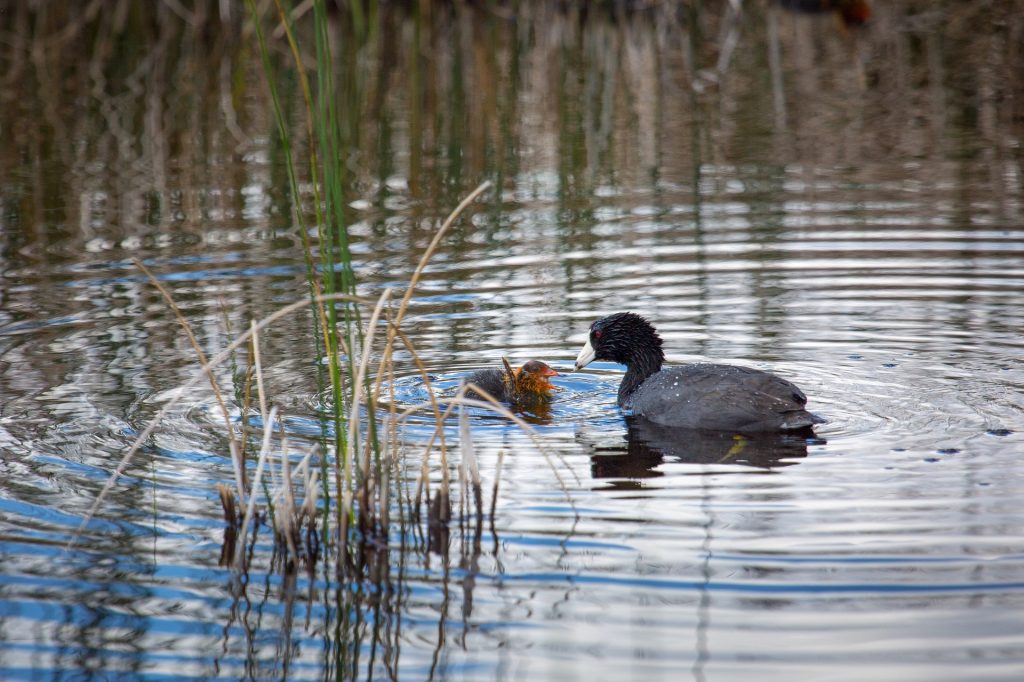Early on in my pregnancy with my fourth child, I was punched. I turned so I got it in my back instead of the gut that it was going for. Thankfully, everything was okay and it didn’t have a negative impact on my pregnancy. Here’s the thing, though. The 10-year-old that threw the punch truly had no idea that he was punching me. This boy was known for having bad behavior. He was having a moment of rage, ran out of the room he was in, and I was there. It was as if I was a wall or a pillow. Afterward, he had no recollection of it happening.
*Downloads may contain affiliate links, meaning I make a small commission on purchases made at no extra cost to you. Thank you for your support!

I adored this kid! I know he thought I was alright as well. He spent much of his school days with me at the time. Sitting in a regular class was extremely difficult. He had a number of diagnoses, but that isn’t the point. He will always be a fellow human being first and foremost. This was his first year in many that he was transitioned back into a “regular” school. That year was 2009.
Recent Event
Recently, when out for my daily walk, I heard, “Hey!” I looked over to see that same former student, the one known as being one of the severe behavior kids, looking at me. He was out for a walk all geared up with tools for bird watching. In the conversation that followed, he explained that he is studying to be an ornithologist and has already identified 138 bird species in the area. I’m being honest when I say that this was the first time I had ever heard that word. However, his general demeanor and how he carries himself today impressed me much more than the word ornithologist!
The American Coot is one of the birds my former student identified for me during our conversation.

An Analogy Between Rotten/Bad Behavior and Household Fruit
I compare this to the rotten banana that recently sat on my kitchen counter. I can choose to simply throw out the banana and give up on it right away. Another choice I can make is to leave the banana on the counter to rot more and continually comment on how rotten it is, that it is getting worse and worse, believing nothing can be done and that it is meant to be. I can choose to freeze it for later use for things such as baking. Another choice I have is to value it for what it is and work to turn it into something even better! Is it any wonder my family loves banana bread so much? 😉

Just as a rotten banana is viewed as a gift in my household, so should each and every child, whether “rotten” or not. It is all in the view we choose to take and the approach that follows. One thing is for sure… giving up on these individuals struggling with bad behavior is not an option! Doing what we can to show we are willing to help them and that we believe in them is! It is of tremendous importance that we look for the good and embrace it!
Sam’s story below is more evidence as to why it is important to focus on the good and on what the individuals care about.
Resources to Try
A few weeks ago, I wrote a post about supporting children in working through and preventing meltdowns that may be helpful. I recommend resources within that post that are worth checking out if working with children known as having bad behavior. Other resources not mentioned in that post that I recommend are as follows:
For Toddler/Preschool Children:
Elizabeth Verdick’s Best Behavior Series board books can help work through difficult behavior in toddlers and children in their early years. Titles include Teeth are Not for Biting, Feet are Not for Kicking, Voices are Not for Yelling, Calm Down Time, and Sharing Time.
For 6-11 Year Olds:
Elizabeth Verdick also co-authored How to Take the Grrrr Out of Anger. This book is a Laugh and Learn book designed for the children to read independently.
For Parents:
Many meltdowns and outbursts can have an anxiety root. A friend of mine recently attended a workshop with Lynn Lyons. As someone who has struggled with anxiety herself, she couldn’t recommend highly enough that I take advantage of any opportunity I have in the future to attend one of Lynn’s workshops. Lynn has created a few resources. With Reid Wilson, Lynn co-authored Anxious Kids, Anxious Parents: 7 Ways to Stop the Worry Cycle and Raise Courageous and Independent Children. This book is for parents to read in helping them to support their 8 to 18-year-old child.
For Tweens/Teens:
The companion book to Anxious Kids, Anxious Parents that is more for tweens/teens to read for themselves is Playing with Anxiety: Casey’s Guide for Teens and Kids.
How About You?
Have you ever come across someone that was known for having bad behavior that was able to turn their life around for the better? Do you have any tried and true strategies or resources that you have used for working with individuals who get explosive at times? Please share in the comments below. 🙂








32 Comments
I have worked with kids that have had behavior issues that I just don’t know what to do with, and then there are the kids that I just know something is going on with them, and I just don’t know what it is. I would love more strategies to use. I teach children’s yoga, so I am trying to help the children in the class learn what to do when they feel big emotions. Last week’s class included a mantra about being the only one that could control your own emotions. I think that the problem is that I never learned this growing up, and so I did not know how to teach it to my children either. I am just now learning more about self-regulation.
I never learned this growing up either. I think our openness to learn and model it now is so valuable. Our children and others we work with can see that we are also working to grow in this area… that it is something we all work at in being our best selves. 🙂
I am so glad that nothing happened to you and your baby. I do believe that kids who are acting out is because they are crying out for help, what a beautiful story and I am glad this kid is now becoming a productive member of society.
Liliana
So am I. Thank you, Liliana! 🙂
Beautiful post. It is just so true.
Thank you, Christine! 🙂
My first born son was a “trouble maker” from the beginning. We decided to keep him home and homeschool him because I believe he needed time, space, and good parental authority. There was never an option to give up on him. I knew he was too young to truly understand what he was doing. Now at 13 he’s an amazing teenager, who knew there was such a thing? Thanks for sharing your story.
I love that your son is doing so well today! Thank you for taking the time to share your experience. 🙂
Love these book recommendations. This is something I needed to read today. Good post!
Thank you so much, Lacey! I am glad you found this helpful. 🙂
What an inspiring post. I will definitely look into the Best Behavior Series board books as I want to read it to my toddler on bedtime so he can have an early understanding of good behavior and hopefully have an impact on him.
Reading at bedtime while learning about best behavior is a great combination! 🙂
Thank you for sharing this post! Growing up, whenever we did something wrong, we were told that we were bad, lazy, or stupid. And I always told myself that I would never say these things to my own children. Your post is spot on, and I plan to share it with my husband just to raise his awareness. I am also interested in taking a look further at the ‘Anxious Kids, Anxious Parents” book.
I love how you are able to take a negative aspect of your childhood and not repeat it with your own children, Trang. Thank you so much for sharing your experience! 🙂
You are so right kids that acting upon something greater than we can imagine. This is a great example why as parents we need a moment to just listen.
I agree that listening is important, Davianna! 🙂
It takes a lot of love and patience to do what you do. Thanks for the book recommendations I will pass one tiltle on to my gf.
Thank you so much, Rochelle! 🙂
When I graduated college, that was my profession, to work with behaviorally challenged children and it was definitely a task. I had one boy in particular who was the sweetest child you’d ever meet, but who could not function in school. I know all too well that great kids have issues but that it does not make them inherently bad. I wish more people took this view.
Yes, these children can be so sweet even when functioning in school is next to impossible for them. Thank you so much for sharing your experience, Kisha! 🙂
Great resources for me to use as a counsellor. Thank you, this is very timely. I will bookmark it to go back to.
Thank you, Darlene! I am so glad you find it helpful. 🙂
As a behavior therapist, I worked with many young children with many labels and that was mostly what people saw when they looked at these kids. It broke my heart. I love how you said they are our fellow human first. I wish more people could also see what I saw in them 💜
Yes, unfortunately the labels are sometimes put at the forefront. You are definitely doing important work!
I am loving your posts! As a former elementary teacher, there were times where I needed to rethink and put student behavior into a different perspective. My favorite moments were when I was able to connect with a student to celebrate the good. What great resources you recommended as well.
Thank you so much for the kind words and for sharing your experience, Sonja! 🙂
Love this post and the book recommendations. I have a two year old, and I’m constantly reminding myself that it’s normal for her to be testing her limits and learning her emotions at this age. I get so worried about what her toddler behavior means for her moving forward. This post made me feel a little better about it.
Thank you so much for sharing your experience, Sam! Two-year-olds are constantly learning and testing boundaries… at least my children were at that age! Hang in there. 🙂
Great resources for a mom or teacher struggling with behavioral issues.
Thank you, Stacy! I’m glad you find them helpful. 🙂
I have a couple of kids with behavior problems. One of my children has very high anxiety and acts out. I try to remember that sometimes mad is actually anxious or sad because overreacting makes everything worse.
Thank you for sharing your experience, Shauna. There are many moms that will relate to it! Yes, it can be difficult to remain calm when our kids are acting out, but you are definitely correct when you say that overreacting makes everything worse. You are a great mom for recognizing that mad doesn’t always mean mad. Hang in there… hugs!